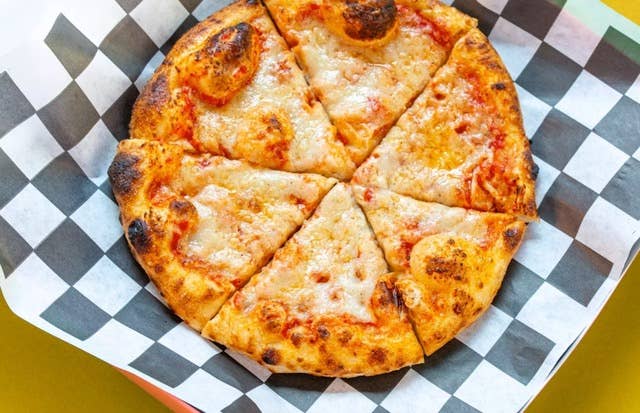
Vegan Cheese That’s Identical to Dairy, But Made Without the Cow
New Culture, a San Francisco-based food technology company, has developed a "dairy-identical" vegan mozzarella that it is bringing to market in 2023. Dairy identical means that the new product is made of a milk protein called casein, which along with whey protein makes up the proteins in cows’ milk, but this casein is created without the involvement of cows. Instead, the company uses a fermentation process to replicate casein so that it can be used as the based of “real cow cheese” that is better for the planet (since animal agriculture is a major contributor to greenhouse gasses), and better for animals, who stay out of the equation. But anyone who avoids dairy for health reasons or because they are allergic or intolerant to casein may want to take a pass.
Traditional cheesemaking practices typically rely on dairy's casein protein. Without them, cheesemaking fails to produce the milk curd that most cheese comes from. New Culture recognized this and discovered a way to recreate the essential protein outside of the cow. Co-founder Matt Gibson partnered with synthetic biologist Inja Radman to develop the dairy-identical casein to give the new vegan mozzarella the same color, nutrient profile, texture, and functionality as traditional cheese.
“Casein proteins are very difficult to make using precision fermentation, but we have made numerous breakthroughs over the last 18 months to produce substantial amounts of animal-free casein protein,” Gibson told FoodNavigator USA, “This ability to make significant quantities of casein protein has enabled us to be the only company 100 percent focused on mozzarella, as mozzarella is so reliant on casein.”
New Culture’s innovative process stems from a synthetic biology technique that inserts DNA sequences into microbes in order to create the desired proteins. The fermentation process allows the company to turn the food source into cheese. By housing the fermented proteins and feeding them sugars, the food tech company can collect the casein and create the dairy-identical mozzarella.
The dairy-identical industry is growing across the market. Israel based-start-up Remilk uses a similar microbial fermentation to create animal-free milk. The company’s commercial partners use dairy-identical milk to manufacture yogurt, cream, and cheese. Remilk raised $11.3 million last year to accelerate its production and distribution on the global market. Brave Robot is an ice cream produced by Perfect Day, a company that makes its dairy with genetically modified microflora to produce casein and whey. The ice cream has the same properties and nutritional breakdown as milk but without the cow.
“Today’s non-dairy alternatives address environmental and health concerns but universally fail to create authentic dairy-based products, like cheese,” Remilk co-founder and CEO Aviv Wolff said. “We’re bridging the gap by making dairy products with dairy proteins without needing a single cow.”
The first vegan mozzarella product is designed to replicate the taste, texture, stretch, and melt of conventional dairy cheese. The cheese is being marketed as animal-free and planet-friendly, using a sustainable process to produce the casein protein. The company also adds some plant-based fats to ensure the product mimicks traditional dairy cheese.
The use of the casein proteins, however, raises some concerns for allergies. Depending on the reason a consumer goes plant-based, the dairy identical cheese could present some of the same problems. For fully ethical reasons, the plant-based casein proteins present consumers with a guilt-free option, but the dairy-identical product could prove equally as harmful to those who stopped eating dairy for health reasons.
New Culture plans to roll out its flagship product across San Francisco Bay pizzerias in late 2023. The rollout will follow its Series A investment round that started earlier this year. The start-up will use the money from this funding round to kickstart its mozzarella’s commercial launch, bringing a dairy-identical, ethically sourced product to consumers everywhere.
More From The Beet






